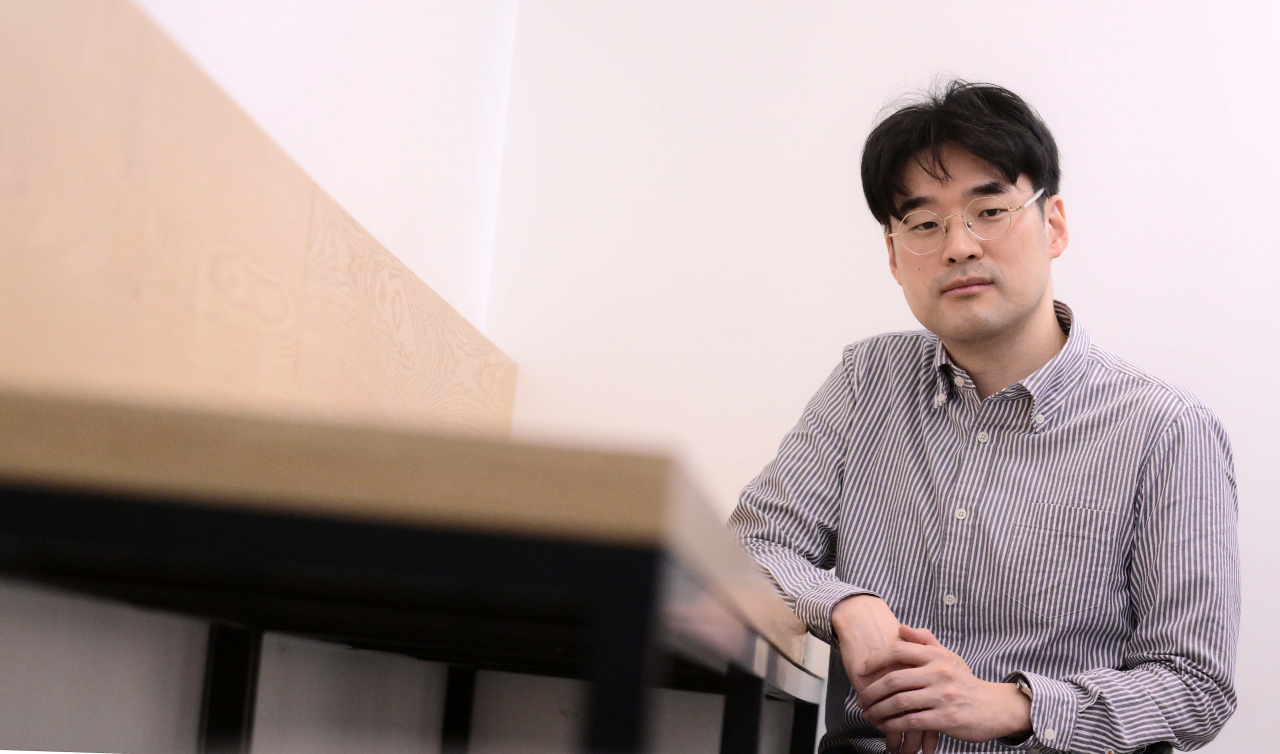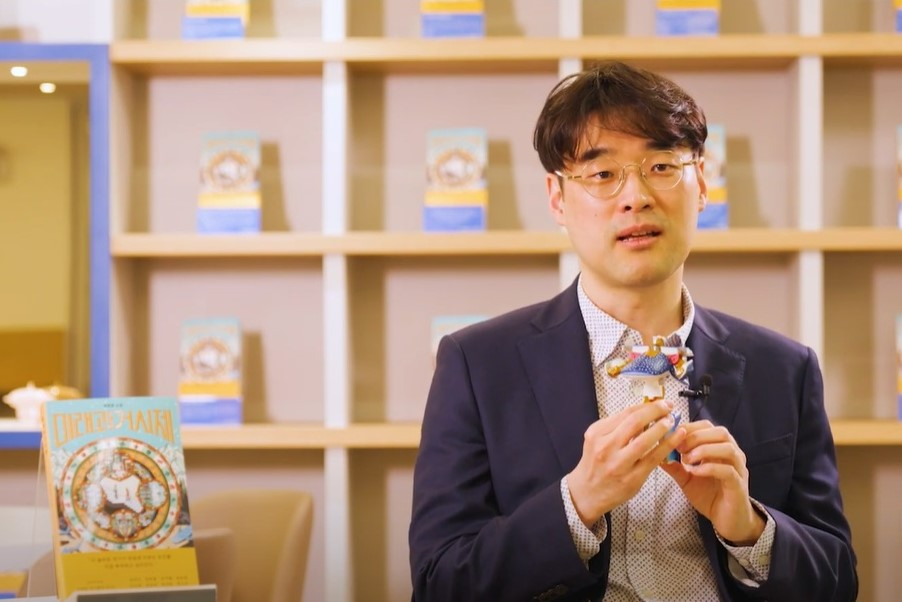
Bae Myung-hoon, author of the bestselling novel “Tower,” has been at the vanguard of the science fiction genre in Korea for the past decade amid its growing popularity.
Bae’s latest collection of stories, “Future Past Tense,” published by Book House, recently hit bookstore shelves. The author expressed confidence that the collection would become his most representative work yet.
“It was like compiling the best songs for an album. I’ve gathered the best of my stories,” Bae said in an interview with The Korea Herald in Seoul's Mapo-gu in April.
Among some 20 stories to choose from, written in recent years, he ultimately selected nine stories -- mostly the more recent ones he wrote during the pandemic period.
“I enjoy reading my own stories before deciding what to publish. I thoroughly enjoyed reading this time because I felt they were significantly better. I chose the ones that I was more sure of.”

Bae handpicked his personal favorite, “Substitute Pilot,” to which he devoted significant effort. The comedy-adventure tale follows a pilot who learns to operate a robot and embarks on a battle after receiving a call from a distant country.
The story unfolds in the form of pansori, a traditional Korean genre of musical storytelling performed by a singer and a drummer.
Bae skillfully utilizes various pansori techniques such as “aniri,” or narrative storytelling, with traditional Korean rhythms from the slowest jinyang to jajinmori, or the fast eight-twelve times beat.
Bae said he wanted to try an old-fashioned writing style after participating in an anthology project regarding Charles Dickens’ “A Tale of Two Cities” in 2012. When contemplating which era to set the story in, he decided to delve deep into songs inspired by the pansori singer Lee Ja-ram’s rendition of “The Old Man and the Sea.” But the task proved challenging for him as an amateur to the musical genre.
“At first, I believed I could simply incorporate the beats and rhymes, but it turned out to be more complex and time-consuming,” Bae said, adding that it was the pandemic that gave him some time to work on this saga that he had been putting off for years.
“Pansori has a distinct rhythm and musical style, so I ended up studying the theories, the beats, and different traditional rhythms to use them appropriately. I had a metronome app for a while to count the beats,” he said with a laugh.
In 2021, Bae had a talk performance with Lee where he recited scenes from “Substitute Pilot” to the drummer's beats.
“Actually, pansori blends remarkably well with the science fiction genre,” he said.

In the titular “Future Past Tense,” Bae presents yet another innovative take on language.
The short story is a romance that revolves around a mysterious man who can time travel. Eun-kyung suddenly realizes that her ex-lover, who vanished without a trace, consistently used a particular verb tense “-am/-um” instead of (the past tense) “-at-” when talking about future events that definitely happened. The protagonist unravels the secret that her lover came from the future and sets out to reunite with him.
In “The Aspiration for 'Cha-Ka-Ta-Pa,'” the story is set in a futuristic Korea where plosive sounds in the Korean language have long disappeared. Similar to an actor playing the role of a historical figure, the protagonist must play a character set in this era where plosives still exist.
The author said the inspiration for the story stemmed from the pandemic, which brought about a transformation to a new normal. So he pondered what else could change in our everyday lives -- language.
Bae removed all explosive sounds from the sentences, changing “pingye” (a word for an excuse in Korean) to “bingye” or “tablet” to “dablet.”
"We’ve become sensitive to the risks of infection via droplets, and it has become so comfortable to speak while wearing a mask,” Bae said. “I imagined what it would be like if all plosive sounds disappeared.”
“I read a book review that was written without using plosives. It's exciting to imagine the reader having as much fun reading this piece as much as I had writing it.”
The piece had been translated by Sung Ryu, who also translated Bae’s “Tower.”

How does the sci-fi writer with an 18-year career envision a future with ChatGPT?
If ChatGPT were to write fiction full-time, the number of novels produced would increase tremendously and in the long term a consumer robot would need to diligently buy books to keep up with the speed, according to Bae.
Similarly, his story “The Guardian of Demand Curve” portrays an AI robot named Masaro designed to enjoy spending money.
“If ChatGPT writes like this now, it will write quite well in five years. And in 10 years, it will be exceptional,” said Bae. “Perhaps there will come a time when novelists have to ‘prove’ that they authored the stories.”





![[Graphic News] More Koreans say they plan long-distance trips this year](http://res.heraldm.com/phpwas/restmb_idxmake.php?idx=645&simg=/content/image/2024/04/17/20240417050828_0.gif&u=)